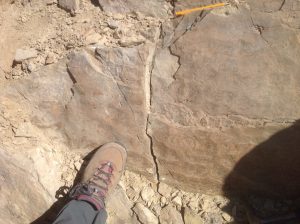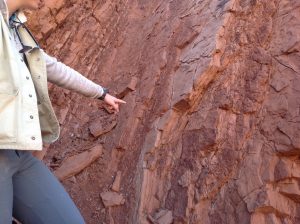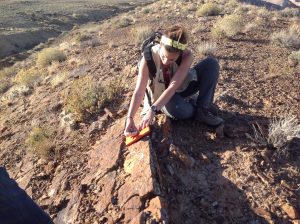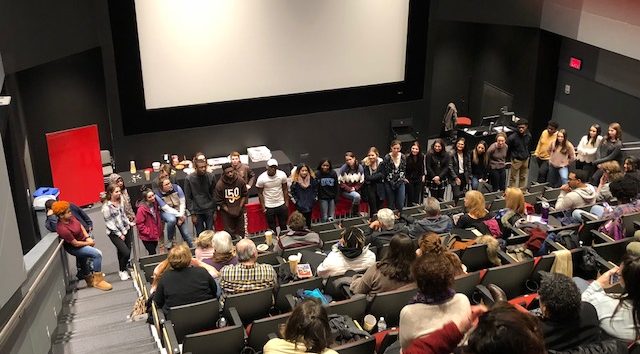I spent my fall break mapping a section of the Bighorn Basin in Wyoming. Large-scale deformation here shaped the landscape and allows geologists to ably observe and study exposed rock layers on ridges, plateaus, and in valleys. As I hiked the terrain with my field team, my mind often wandered to a comparison: geology as documentary. It’s what the science is, really; geologists attempt to tell the story of this planet, on a large scale or in smaller sections. We find some product in the field and we use all resources and knowledge we have in order to tell its story.
There are many ways in which it is unexpectedly similar as well. Bias and perspective are both very real in this type of fieldwork. I read once in a book by John McPhee that the place where a geologist learns the basics, influences what they initially think of any area for their entire career. My main exposure to geology has been around Pennsylvania and New Jersey, and so Appalachian-type geology will most likely warp my vision of outcrops. However, I have also been on interim courses in areas such as Iceland, so hopefully a wider geographic beginning will help diminish my bias.
I think that perspective is as different from bias in geology as in documentary. Perspective is formed by not only where you studied but also what exactly you learned there, perhaps who your professors were and what they taught. It is formed additionally by your individual character and mind forming judgments on what you are seeing, your own nature and nurture and personal experiences.
The tangible end result of this Wyoming mapping project is a paper on the history of the studied area: in what ancient environments the rocks were laid down, and during what subsequent events they were deformed. Both of these questions are those of documentation. The paper that will exist is documenting the area.




I enjoy the comparison you drew between geology and documentary. While the two are very different disciplines the discussion you brought up relating to their similarities is creative; and I believe important. It is vital that we understand how our experiences form the context with which we see the world. If we fail to understand how our individual experiences have the potential to skew the lens we view our world with we risk losing the effectiveness of our work, this is true for anything we do whether it be documentary or geology.